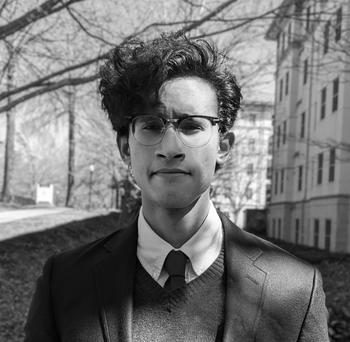Michigan State warns against using bigoted phrases like 'Christmas trees,' 'terrorist' or 'overweight'
MSU released an inclusive language guide cautioning against use of certain common words and phrases, pointing to potential offensive connotations or origins.
Language referring to Christian holidays or the United States was listed under 'terms to avoid.'
Michigan State University (MSU) has a language guide, updated annually, for its official communications, discouraging the use of certain words and terms which the university claims may be offensive.
“The origins of seemingly innocuous idioms or words may be racist, sexist or ableist in nature,” the guide claims, citing phrases like “cake walk,” “tipping point,” “bonkers,” and “rule of thumb” as examples of potentially harmful language.
Other words flagged as problematic include “tribe,” “founder,” “minorities,” and “’America’ when referring to the United States.” Using the words “fundamentalist” and “terrorist” when writing about religious extremists was also discouraged.
[RELATED: MSU had nearly 1,200 racial incident reports in 5 years. Here’s how many were valid.]
Positive language surrounding traditionally Christian holidays was not exempt from MSU’s critique.
”In winter and spring, avoid references to majority religious imagery and language, such as the word ‘merry’ or ‘Christmas trees,’ ‘wreaths,’ ‘holly,’ ‘bells,’ ‘gifts,’ ‘reindeer,’ ‘bunnies,’ ‘eggs’ and ‘chicks.’ Use terms like ‘wishing you a wonderful winter/spring break’ or ‘best wishes for the new year,’” reads the guide.
Such language is being removed from university communications to align “with strategic efforts around diversity, equity and inclusion” undertaken by MSU.
Universities across the country have been compiling lists of words that faculty, staff, and students are discouraged from using due to their allegedly bigoted origins or connotations.
In January, the University of Southern California School of Social Work decided to remove the word “field” from its communications due to its percieved ties to slavery. At Stanford University, meanwhile, the word “American” was designated as potentially offensive, though the university later walked that back.
Harmful language lists have spread beyond colleges and universities, with mainstream news outlets like Politico now adopting similar blacklists.
MSU says some terms are to be avoided due to their purported harm to American Indian communities. “Pioneer,” “frontier,” “conquer and divide,” and “powwow,” among others, are listed in this category
“POC [People of Color],” “BIPOC [Black, Indigenous, and People of Color],” and “QTBIPOC [Queer, Transgender, Black, Indigenous, and People of Color]” are also barred by the university as they argue the terms are not inclusive enough.
[RELATED: MSU student gov will now recite ‘land acknowledgment’ at meetings]
The guide places emphasis on “representing diversity of size in communication,” as well.
The terms “obese,” “obesity,” and “overweight,” are described as “pathologizing stigmas in the size-diversity community” and, according to the guide, should not be used “when describing individuals.” Instead, the guide recommends the use of “higher weight,” “larger-bodied,” or “students of size.”
Other common names for medical conditions are also filed under “terms to avoid.”
“Invalid,” “tone-deaf,” “nuts,” “lame,” and “blindly” are dubbed “ableist language” and to be avoided.
Campus Reform reached Michigan State University for comment; this article will be updated accordingly

